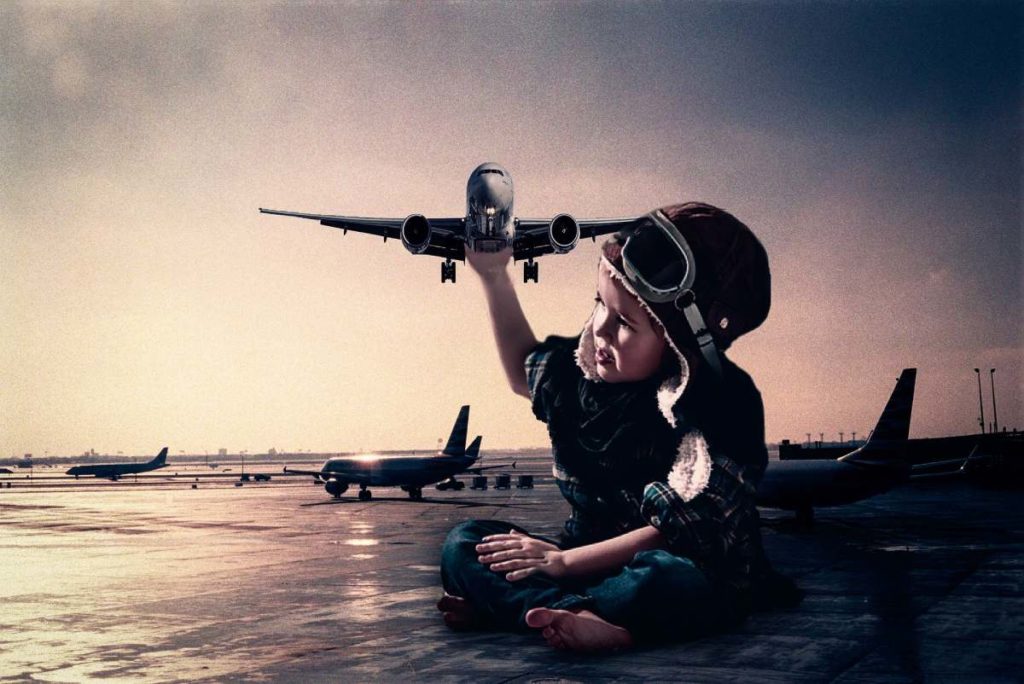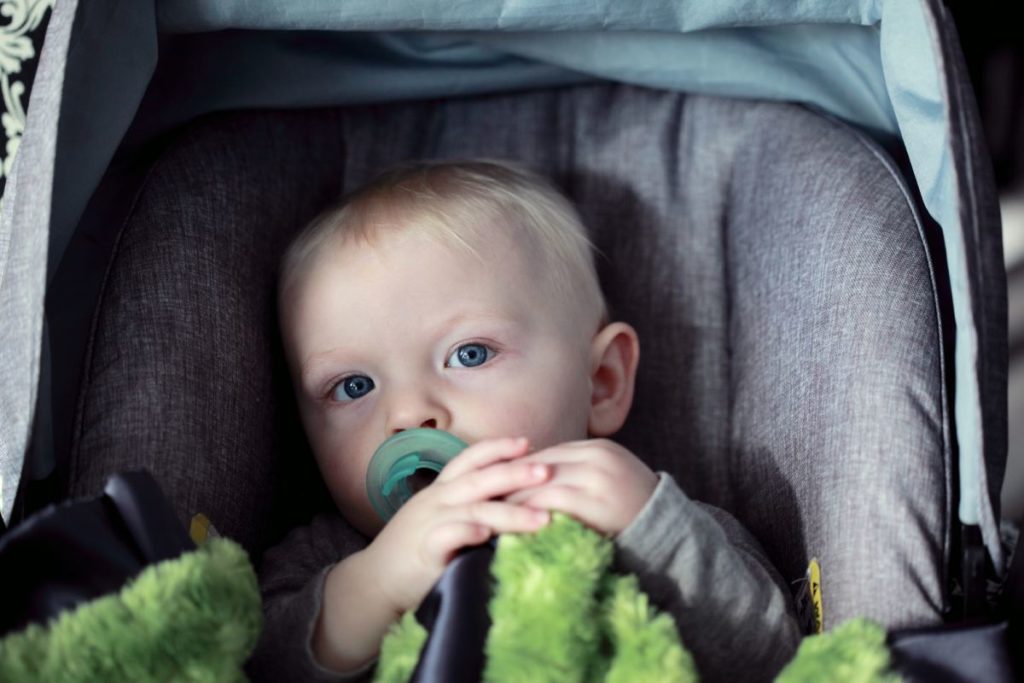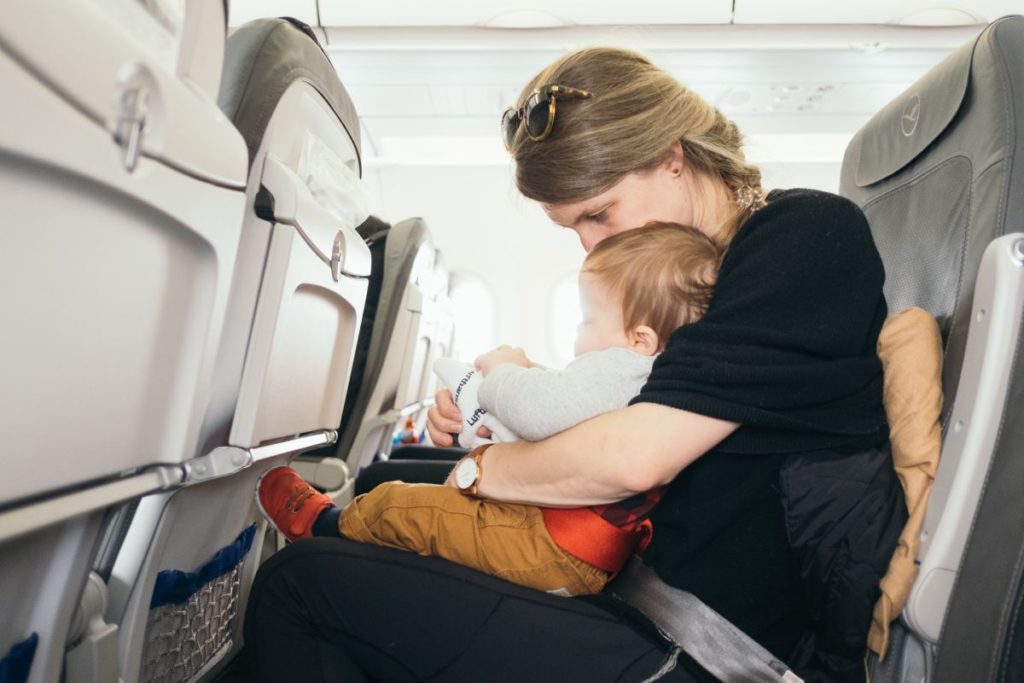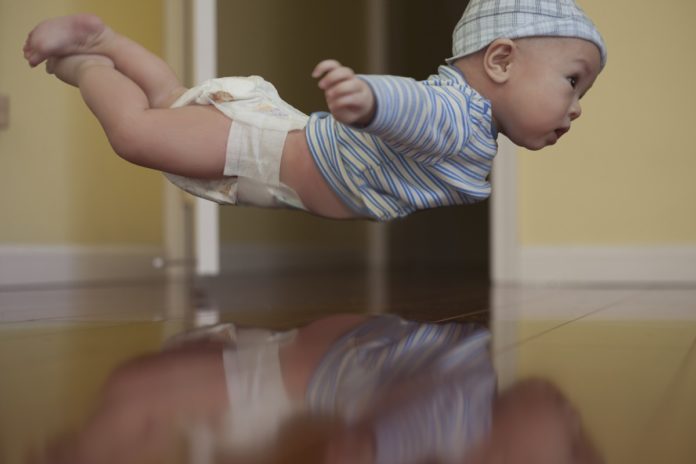Flying with a baby may sound like a stress-inducing nightmare, but it’s often unavoidable. Whether you are relocating, visiting family, or enjoying a family vacation, airplane travel with infants is a part of life. Travelling can be difficult even at the best of times, with tickets, odd flight times, luggage and transfers to organise, and this only gets more complicated when flying with a baby. You may be worried about your baby during long haul flights, and keeping your baby safe during turbulence.
But it doesn’t have to be this stressful! Once you know how to fly with a baby easily and efficiently, your worries will subside.
Here are our top tips for travelling with an infant:
Planning and prepping for the flight
Be prepared!
Write a list of everything you may need during your trip, including medication in case you or your baby gets a cold, fever, or stomach bug. You’ll be thankful when you don’t have to search for a pharmacy in a new city!

Don’t over-pack
Be prepared, but don’t burden yourself with everything you own. Decide what baby gear you can temporarily do without, and you can have the rest shipped to you using a service such as Baby’s Away. High chairs, toys, and toys can all be waiting for you at your final destination, making the flight with your baby much less stressful.
Arrive early
Getting to the airport about half an hour earlier than you’d arrive if travelling without children is ideal. It will minimize your stress, and give your infant time to tire themselves out before the flight.
Wear your baby
Baby carriers will be your best friend when travelling. When wearing your baby through security, you’ll have two free hands for everything else you need to carry. They also help with discreet breastfeeding, which can be helpful during takeoff and landing to relieve the pressure on your baby’s ears.
Bring distractions!
An iPad can be useful for children as young as one year, but useless for younger babies. Instead, babies can be distracted by almost anything else: keys, a water bottle, or tissues. Anything new and tactile to play with will help the time pass smoothly when flying with a baby.
Staying safe during air travel with a baby
Be aware of age restrictions
Be sure to check your airline’s regulations, as different airlines have different policies on travelling with a baby on a plane. Some require an infant to be at least two days old, others at least 2 weeks old. It is recommended by doctors that you wait until your baby’s immune system is more developed before flying, usually at least one month, though most recommend anywhere between 3-6 months.
Babies need passports too!
Make sure you start the process of obtaining your baby’s passport well before your trip if you’re going abroad to avoid stress.

Book a separate seat for your baby
Although children under age two can typically fly for free if sitting on your lap, the Federal Aviation Administration states that the safest place for your baby on an airplane is in a government approved child safety restraint system or device, not on your lap. They advise that “your arms aren’t capable of holding your child securely, especially during unexpected turbulence”.
Be prepared for ear pain
Sucking or chewing helps relieve ear pain caused by pressure changes in the airplane’s cabin. To help your baby with this pain, bring formula or pumped breast milk and give your baby a bottle during take-off and landing. You may also want to ask your pediatrician to prescribe ear pain drops before your flight with your baby.
Why seating matters for your flight with a baby
Arrive early to get the bassinet
For most short flights, any seat will do, though an aisle seat at the front of the plane is preferable for getting up to walk or change the baby. On most international flights there are baby bassinets that fasten to the bulkheads that can be used if your baby is less than 20-30 pounds. Most of the time, these cannot be reserved or booked, and are handed out on a first come, first served basis at the gate. Make sure you arrive early for your flight to get the best seats!

Request an empty seat next to you on the plane
If you decide not to purchase a separate seat for your baby, ask if there are any empty seats on the flight and if you can be seated next to them. It never hurts to ask, and if you get lucky, the extra space will be a helpful bit of luxury.
Take advantage of priority boarding and baby benefits on the flight
Most airlines allow people with small children to board first, which is especially helpful if you are flying alone with your baby. Similarly, you can often find a priority line for security. Always ask if there are priority lines for you – it will make life much easier!
If you can afford it, VIP services will also be a godsend, whether it’s curbside check-in, expedited lines, or pre-boarding.
By following these top tips, you’ll be ready for airplane travel with a baby and on your way to your next destination stress-free.

